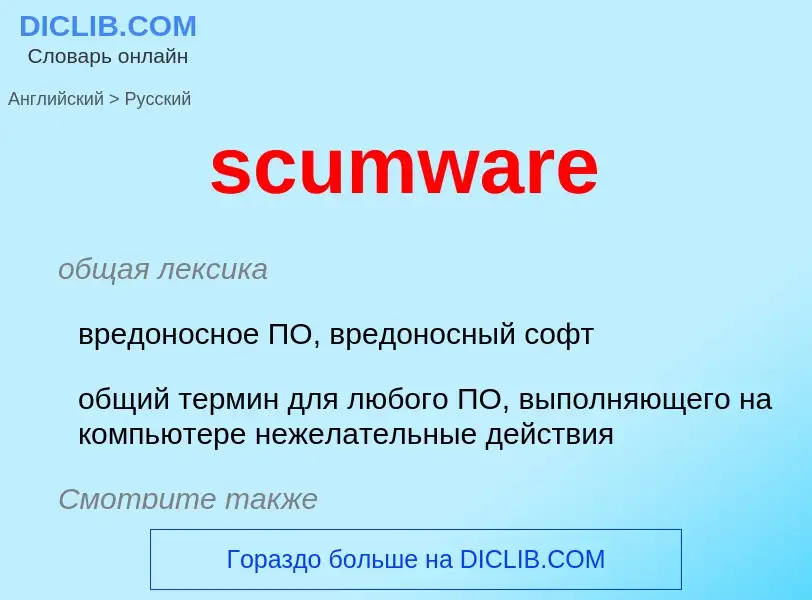Vertaling en analyse van woorden door kunstmatige intelligentie ChatGPT
Op deze pagina kunt u een gedetailleerde analyse krijgen van een woord of zin, geproduceerd met behulp van de beste kunstmatige intelligentietechnologie tot nu toe:
- hoe het woord wordt gebruikt
- gebruiksfrequentie
- het wordt vaker gebruikt in mondelinge of schriftelijke toespraken
- opties voor woordvertaling
- Gebruiksvoorbeelden (meerdere zinnen met vertaling)
- etymologie
malware - vertaling naar Engels
Definitie
Wikipedia
Malware (a portmanteau for malicious software) is any software intentionally designed to cause disruption to a computer, server, client, or computer network, leak private information, gain unauthorized access to information or systems, deprive access to information, or which unknowingly interferes with the user's computer security and privacy. Researchers tend to classify malware into one or more sub-types (i.e. computer viruses, worms, Trojan horses, ransomware, spyware, adware, rogue software, wiper and keyloggers).
Malware poses serious problems to individuals and businesses on the Internet. According to Symantec's 2018 Internet Security Threat Report (ISTR), malware variants number has increased to 669,947,865 in 2017, which is twice as many malware variants as in 2016. Cybercrime, which includes malware attacks as well as other crimes committed by computer, was predicted to cost the world economy $6 trillion USD in 2021, and is increasing at a rate of 15% per year. Since 2021, malware has been designed to target computer systems that run critical infrastructure such as the electricity distribution network.
The defense strategies against malware differ according to the type of malware but most can be thwarted by installing antivirus software, firewalls, applying regular patches to reduce zero-day attacks, securing networks from intrusion, having regular backups and isolating infected systems. Malware is now being designed to evade antivirus software detection algorithms.


